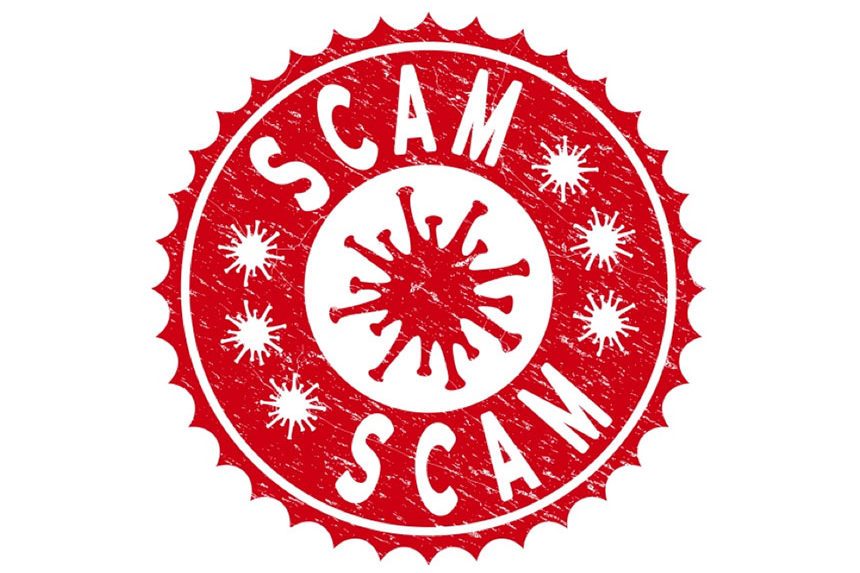Steve Weisman is a lawyer, college professor, author, and one of the country’s leading experts in cybersecurity, identity theft, and scams. See Steve’s other Con Watch articles.
Scammers are adept at manipulating anything that has captured the attention of the public and turning it into an opportunity to scam people. With the attention of the world focused on the rapidly spreading coronavirus, related scams are increasing at an even faster rate.
Here are two of the more common scams.
Pump and Dump
Everyone would like to be able to invest in a stock while the price is still low, but predicted to rise dramatically. This desire for a quick buck is exploited in a scam called the “pump and dump.” In this scam, you hear about a company with a stock price that is currently low, but about to rise tremendously. You may hear about this great deal by email, phone call, or text message, or even in chat rooms or on social media. The advice almost always comes from someone you don’t know. Most often these companies are small capitalization companies, often referred to as penny stock companies. These stocks are often thinly traded.
The victim buys the stock, and sure enough, the stock price promptly rises. But then without warning, the stock plummets in value, and the investor is left with a poor investment. This scam is created by criminals who buy the stock themselves at a low value and then influence others to buy the stock. Once the stock has shot up in value, the criminals sell their stock, make a profit, and leave the victims with losses when the stock reverts to its true, lower value.
The Securities and Exchange Commission (SEC) has warned of “a number of Internet promotions, including on social media, claiming that the products or services of publicly-traded companies can prevent, detect, or cure coronavirus, and that the stock of these companies will dramatically increase in value as a result.” In regard to the coronavirus, the World Health Organization has strongly indicated that there are currently “no known effective therapeutics” available to prevent or treat the coronavirus.
Protecting Yourself from the Pump and Dump Scam
Always consider the sources of any investment advice. How reliable is the source? What are the credentials of the people advising you? What do they stand to gain? Some particular red flags that a stock offer is a scam include unregistered investment advisers approaching you. You can find out if a particular investment adviser is registered by going to the SEC’s Investment Adviser Public Disclosure database.
Also be wary of promises of huge profits with little or no risk.
Finally, be skeptical when you receive a stock solicitation through an email, text message, phone call, or any other communication that you have not initiated. Be particularly skeptical if the promoter of the stock tells you that they have inside information, because trading on inside information is a criminal offense.
Phishing Emails
In another coronavirus related scam, cybercriminals send phishing emails to lure people into downloading malware-infected attachments. The malware might be keystroke logging software that can steal personal information from your phone or computer and use that information to make you a victim of identity theft. In other instances, it could be ransomware malware that will hold your data hostage until you pay the criminals.
These phishing emails purport to provide important information about the virus. Often these emails appear to come from the Centers for Disease Control or the World Health Organization, which are two legitimate organizations leading the fight against the coronavirus. These phony emails may even contain the official logos of these organizations.
Protecting Yourself from Phishing Emails
Any time you get an unsolicited email that asks for personal information or instructs you to click on a link or download an attachment, you should be wary. Remember my motto, “trust me, you can’t trust anyone.” Never provide personal information, click on a link, or download an attachment unless you have absolutely confirmed that the email is legitimate.
You should also make sure that your phone, computer, and any other devices are protected by security software, and be sure to update that software with the latest security patches as soon as they become available. It is important to remember, however, that the most up-to-date security software will always be at least 30 days behind the latest strains of malware, so you cannot depend on your security software to be 100 percent effective.
Some Final Advice
There is a lot of misinformation about the coronavirus, so if you want information you can trust on this subject, go to a legitimate source such as the World Health Organization or the Centers for Disease Control.
Featured image: Shutterstock
Become a Saturday Evening Post member and enjoy unlimited access. Subscribe now



